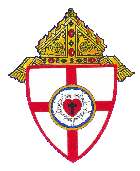

| Augustana Catholic Church | |
|---|---|
 | |
| Classification | Lutheran |
| Orientation | Evangelical Catholic |
| Polity | Episcopal |
| Region | Africa, Caribbean, Latin America |
| Founder | Irl Allen Gladfelter |
| Origin | 1997 |
| Branched from | Lutheran Church - Missouri Synod |
| Congregations | 19 |
| Members | 11,100 |
| Ministers | 22 |
The Augustana Catholic Church (ACC), formerly the Anglo-Lutheran Catholic Church (ALCC), Augustana Evangelical Catholic Church (AECC), and Evangelical Community Church-Lutheran (ECCL), is a High Church LutheranorEvangelical Catholic denomination. Founded in 1997 by Metropolitan Archbishop Irl Allen Gladfelter, a former United States Army lieutenant colonel,[1] the church claimed 19 congregations, 6 schools, 22 clergy, and 11,100 members altogether in 2010.[2] Although it no longer has a presence in the United States as of 2013, the Augustana Catholic Church is active in Haiti and Ecuador, as well as in certain African countries.[3]
In 1997, the church was founded as the Evangelical Community Church-Lutheran by former members of the Missouri Synod.[2] Founded and initially led by Irl Allen Gladfelter, the church was headquartered in Pittsburg, Pennsylvania; by January 2004, Gladfelter was episcopally ordainedbyPeter Paul Brennan, who also ordained him as deacon and priest.[1] Gladfelter was a member of the Anglo-Papalist Order of Corporate Reunion. After their ordinations, an Augustinian order was established within the church.
During Gladfelter's tenure, the denomination accepted papal primacy and infallibility, and clergy were required to sign a mandatum, affirming their rejection of teaching beliefs contrary to Roman Catholic doctrine; by May 2009, the church filed a formal petition to enter full communion with the Latin Church,[4][5] and in 2011, Gladfelter resigned as leader and reconciled with Roman Catholicism.[6]
As of 2013, the church was dissolved as a registered non-profit corporation within the United States; it remained active in Latin America and the Caribbean, and Africa.[3]
The Augustana Catholic Church accepted papal primacy and papal infallibility even though it was not under papal control.[7]
The Augustana Catholic Church established altar and pulpit fellowship (full communion) with the Association of Evangelical Lutheran Churches.[8]
{{cite web}}: CS1 maint: unfit URL (link)
The Association of Independent Evangelical Lutheran churches was formed in 1988 and incorporated in New York in 2001. It is a small, conservative Lutheran church that affirms the authority of the Bible. It maintains dioceses for Haiti, South America, and South Africa, and is in communion with the Augustana Catholic Church, the Lutheran Orthodox Church, and the Lutheran Evangelical Protestant Church.